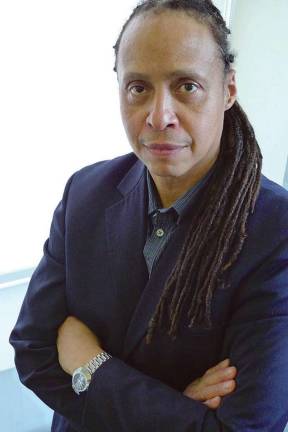From Black Panther to Columbia Lion

Jamal Joseph attended a protest in Harlem the night Dr. Martin Luther King Jr. was assassinated. Though the protest was mostly peaceful, looting and rioting broke out. Cops began clubbing and shooting at the protesters, making no differentiation between looters and those simply shouting phrases like "The King is dead."
The police chased Joseph, a young African-American teen, through an alley, firing at him a few times before he was stopped by a group of black men wearing leather coats and berets. They surrounded him in a military-style formation and told him to go home after informing the police that he was not a looter.
The next day, Joseph went to school and declared that he was going to be a black militant. At the age of 15, he joined the Black Panther Party, a revolutionary organization formed in 1966 to advocate for the rights of African Americans in the United States.
In his new memoir, "Panther Baby: A Life of Rebellion and Reinvention," Joseph, now a Columbia University professor, chronicles his time as one of the youngest members of the Black Panthers.
"The idea for the book came when people I spoke to, in particular young people, asked me what it was like back then," he said in a telephone interview.
Joseph grew up in the Bronx and was raised by his adoptive grandparents, from whom he received his first encounter with activism. Lifelong members of the NAACP, both participated in rallies, marches and fundraisers for blacks living in the South, where their parents were slaves.
"I grew up hearing stories about the horrors of slavery and lynching and the KKK," he said. "They told first-person narratives of what racism was about."
In high school, Joseph was an honor student and choirboy. He was drawn to the Black Panthers by his feelings of hurt and anger after King's assassination and by the "swagger and strength of the party."
"If I was going to be a black militant, I was going to be part of the most militant group out there," he said.
At 16, his involvement with the group landed him in prison on Rikers Island. He was charged with conspiracy in 1969 as one of the Panther 21 in one of the most symbolic criminal cases of the decade.
After he was acquitted of the charges two years later, he became the youngest spokesperson and leader of the Panthers' New York Chapter. He was later sentenced to more than 12 years in federal prison for hiding members of the organization who were wanted by the FBI.
Joseph earned two degrees behind bars and found a new calling in the arts, writing several plays and two volumes of poetry while in prison. Today, Joseph is a celebrated filmmaker, having written, produced and directed several documentaries. He is a professor and chairperson of Columbia's School of the Arts film division.
In 2008, he was nominated for an Academy Award for Best Original Song for "Raise It Up" on the soundtrack of August Rush. The song was performed by Impact Repertory Theater, a youth activist and performing arts organization based in Harlem that Joseph and his wife, Joyce, cofounded with other members of the community.
Joseph said he enjoys working with youth and hopes "Panther Baby" will help inspire the next generation of activists.
"For young people who read it, I want them to understand how much power they have to make a difference," he said. "I also hope that for people who lived through the '60s, it validates what we tried to do at that time. Finally, in terms of what still needs to be done, I hope it inspires people and lets them know that it's not too late. Activism, just like dreams, doesn't have an expiration date."
- Ashley Welch